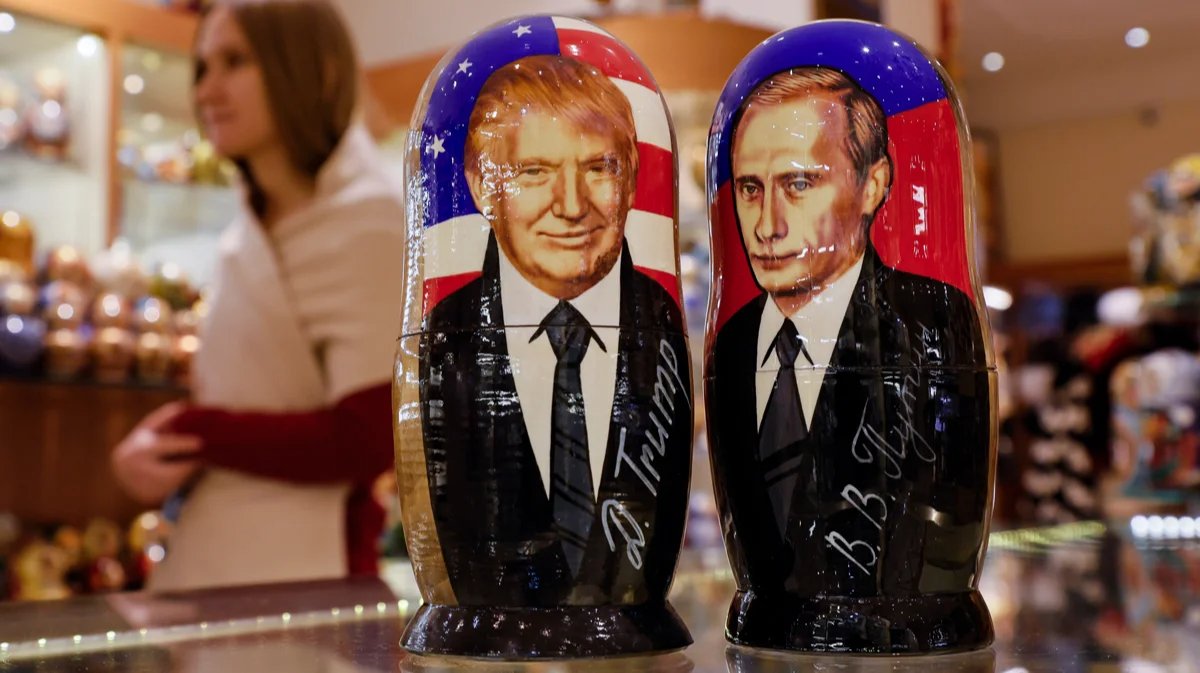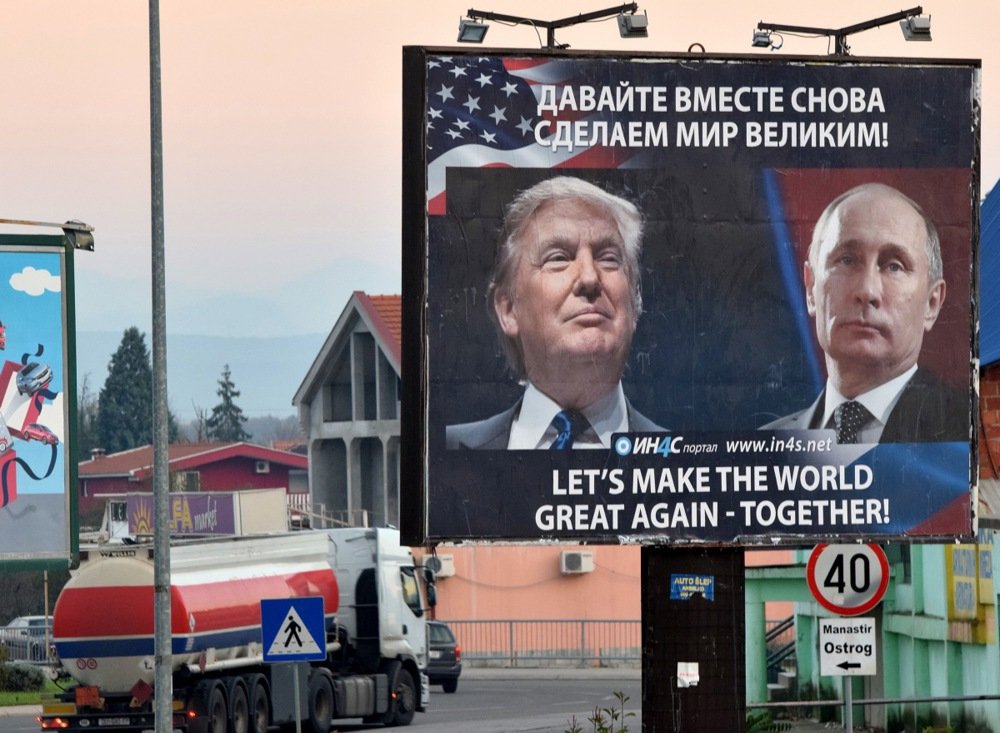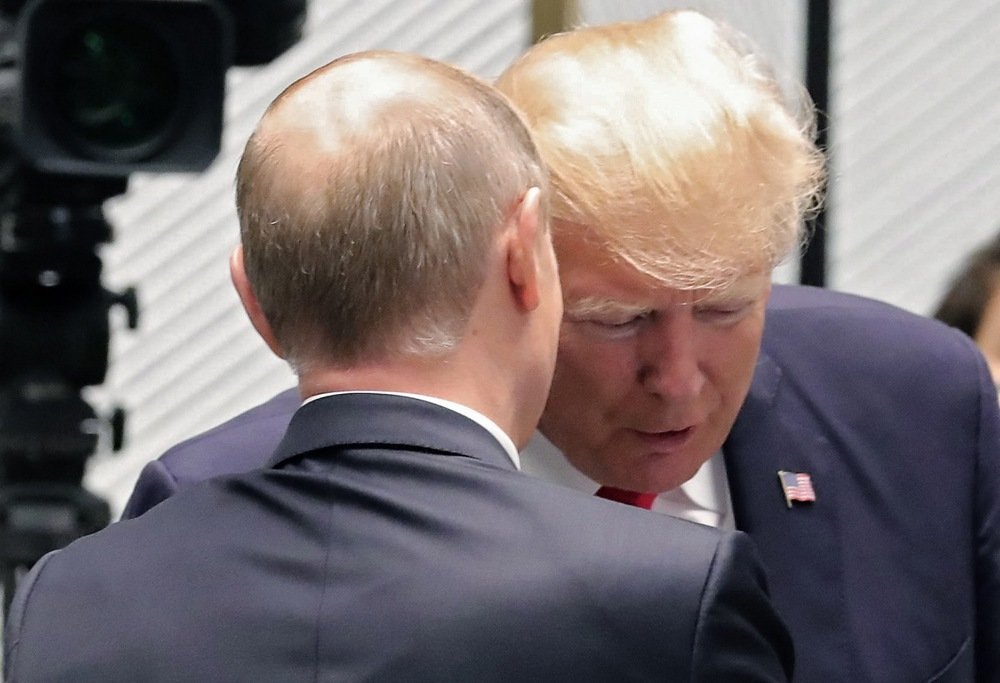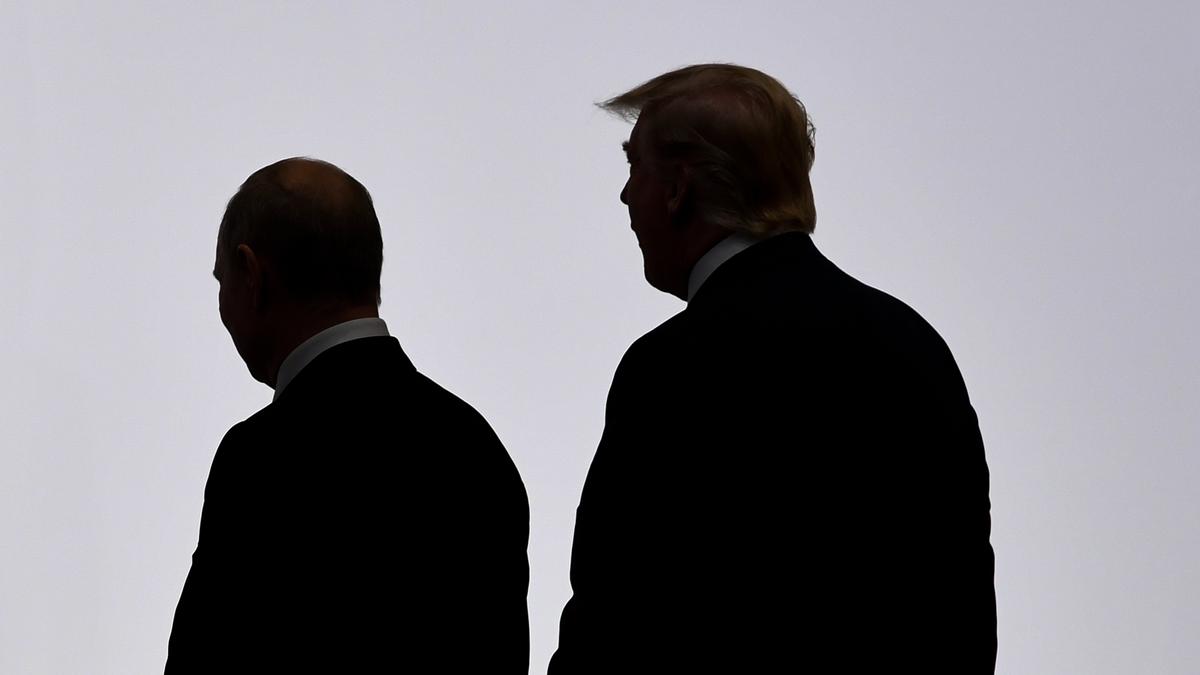Donald Trump’s victory in the US presidential election may dramatically change Washington’s policy towards Russia and Ukraine. In particular, Trump’s apparent willingness to negotiate with Putin has raised concerns that he is ready to make certain concessions to Moscow, which would, in turn, result in a reduction of support for Kyiv, something that could affect geopolitical stability and diminish the US role as a key ally to Europe. Novaya Europe asked a number of political analysts what Trump’s second term might mean both for Russia and Ukraine.
Friends with benefits
During his first term, Trump and Putin got along well personally, though there continued to be disagreements at the official level. Indeed, the first Trump administration entered office accusing Russia of interfering in the US election, leading to the appointment of special counsel Robert Mueller to investigate Moscow’s attempts to influence the vote.
Trump and Putin met several times during Trump’s four years in office, including at a 2018 summit in the Finnish capital Helsinki where Trump’s reluctance to publicly criticise Putin for meddling in the US election at a joint press conference drew significant criticism both domestically and abroad.
Moreover, despite the lip service paid by Trump to improving relations with Moscow, he nevertheless unilaterally withdrew from the Intermediate-Range Nuclear Forces Treaty in 2019, citing repeated Russian violations of its terms and raising concerns that a fresh arms race between the two countries might soon follow.
Often portrayed by Russian state media as a “friend of Russia” and a man capable of normalising relations with Moscow, Trump was in general viewed quite positively by Russians as someone who promised to improve bilateral ties and to ease sanctions.

Putin and Trump matryoshkas on display at a souvenir shop in Moscow on Wednesday. Photo: Yuri Kochetkov / EPA-EFE
The art of the deal
Ahead of this year’s election, analysts polled by The Associated Press said that neither a Trump nor Harris victory would bring much improvement in US-Russian relations, which are now frequently described as being at their lowest point since the Cold War.
However, during the campaign Trump’s running mate, J.D. Vance, said that he no longer saw Russia as an existential threat to Europe, adding that Washington’s long conflict with Moscow had run its course. At the time, experts feared that such a view might cause discontent and even lead NATO to rupture as European governments lost their faith in American defence policy, while reduced US support could allow Russia to increase its influence in the region, including on the EU’s eastern flank.
Trump has also criticised Biden’s refusal to engage with Putin, arguing that diplomatic efforts would be more effective than sanctions and providing military assistance to Kyiv. Nevertheless, Trump has not presented his own plan for how he intends to reach a compromise, though he did say during the election campaign that “whether you like it or not”, Putin was at the top of his game.
Putin only congratulated Trump on his win on Thursday, with analysts suggesting the Kremlin was exercising caution and not getting its hopes up of an immediate breakthrough in relations. Pavel Dubravsky, who runs Campaign Insider, a website specialising in elections and political strategy, said that future bilateral relations depended on the first contact between the two, and stressed the importance of not forgetting that Trump is by no means Russia’s poodle.
Russian political scientist Nikolay Petrov, a visiting researcher at the German Institute for International and Security Affairs in Berlin, told news website Euractiv that Trump was someone the Kremlin wanted and could do business with, adding that while Moscow and Washington would now take active steps to foster contacts, this would be unlikely to herald a major change in relations.

A billboard by a pro-Serbian movement shows Trump and Putin in Danilovgrad, Montenegro, 16 November 2016. Photo: EPA/BORIS PEJOVIC
“For the next four years, the White House has a boss who obviously doesn’t want to continue American involvement in the war in Ukraine as happened under Biden and as might have happened under Harris. The Kremlin thinks it’s easier to negotiate with Trump, because he acts on business interests, not values. His priority is what he can get in return,” Petrov said.
However, quite what Putin might have to offer Trump if he holds no leverage over him is unclear. Political analyst Alexander Morozov said he thought the Kremlin would continue to showcase its friendship with China and India, and would attempt to create the impression that it was expanding military cooperation with Iran, none of which would please Washington, but nor would it exert pressure on Trump.
In the longer term, the interests of the two leaders diverged too greatly for them to agree on anything substantial.
In any case, both analysts said that in the longer term, the interests of the two leaders diverged too greatly for them to agree on anything substantial, with Petrov adding that Putin didn’t actually need part of Ukraine or to freeze the conflict.
“He needs to show that the West has been defeated. But Trump won’t want to start his presidency with a public humiliation. I don’t think he wants a repeat of the situation Biden found himself in when US troops left Afghanistan early in his presidential term. So Trump absolutely cannot allow what the Kremlin needs,” Petrov said.
Dubravsky questioned the ability of experts to predict the trajectory of future US-Russian relations, and suggested that they could deteriorate, recalling how Trump previously continued Barack Obama’s sanctions policy for some time.
Lifting sanctions
Trump is openly sceptical about sanctions as an effective means of exerting pressure on Russia. Even during his 2016 presidential campaign, he noted the harm that sanctions often did to the US economy, and signalled that was ready to consider lifting some sanctions on Moscow in exchange for concessions.
Nonetheless, in 2017, Trump signed the Countering America’s Adversaries Through Sanctions Act into law after it was passed by Congress, and then went on to impose several further rounds of sanctions on Russia in response to the 2018 poisoning of Russian double agent Sergey Skripal in the British town of Salisbury.
However, as sanctions are considered such an important restraint on Russia, many analysts see risks inherent in any move by Trump to lift them, fearing that it could free up additional resources for Russia to continue its war in Ukraine and expand its political influence.
It could also weaken the US’s position as leader of the coalition reining Russia in. For this reason, the EU has already discussed collectively increasing its own sanctions on Moscow, in an attempt to countermand any potential easing of pressure on the Kremlin by the incoming president.
How to end the war
Trump has boasted of being able to end the war in Ukraine in a single day, by negotiating with both Putin and Ukrainian President Volodymyr Zelensky. However, he has never said what steps Russia and Ukraine are ready to take towards such a peace deal.
Trump’s statements have convinced the Ukrainian authorities that his plan includes concessions such as surrendering Russian-occupied Ukrainian territory to Moscow.
“There is as yet no detail around Trump’s deal. If anything, his idea of ending the war in 24 hours only raises doubts. How? Will his plan also put pressure on Russia? The Russian authorities will consider that unacceptable and the Kremlin will hardly see it as a positive incentive,” Dubravsky said.
Journalist and independent researcher Konstantin Skorkin told Novaya Europe that Trump would be very keen to offer Putin a deal. “In Moscow, for some reason, they are sure a deal means Trump giving Putin everything he wants. This is another case of Kremlin delusion, like taking Kyiv in three days,” Skorkin said, adding that the deal would be a bitter pill for Ukraine to swallow, and is unlikely to mention the country’s internationally recognised 1991 borders.
“Putin’s fantasies of a divided Europe are of no interest to Trump.”
In fact, according to Skorkin, any deal would involve Ukraine ceding its territory in exchange for peace, or a Korean scenario, in which the war is simply frozen along the current front line and no final peace treaty ending the war is ever signed.
“Putin’s fantasies of a divided Europe are of no interest to Trump, and if the Kremlin refuses to accept a deal, which is highly likely, the US president will continue or even strengthen aid to Ukraine, since the American military industry benefits and can crank out more tanks and shells.”
Skorkin adds that Trump is confident that the war has been going on for so long due to the Biden administration’s failed policies, whereas he alone “will be able to negotiate with Putin”, something he calls an “arrogant illusion”.

Putin and Donald Trump meet at the 25th APEC summit in Da Nang, Vietnam, 11 November 2017. Photo: EPA-EFE/MIKHAIL KLIMENTYEV/SPUTNIK/KREMLIN / POOL
“The war is ongoing because Putin wants to seize Ukraine, and there is nothing to suggest he will abandon that goal. When or if Trump gets that, his policy may change dramatically,” Skorkin said.
However, due to Trump’s lingering belief that Zelensky has been playing the Democrats, US-Ukrainian relations are also beset by problems. “It is clear that Zelensky’s ‘victory plan’, which the Democrats were sceptical about, won’t be taken seriously by Trump. Zelensky will have to freeze the conflict, and can be blackmailed with continued assistance, which Ukraine needs to survive. It will be another matter if Trump realises the problem isn’t Zelensky and Ukraine, but Putin’s insanity,” Skorkin concluded.
“The situation is so strategically deadlocked that even the Kremlin and the White House may find themselves unable to solve it.”
How Trump will act towards Ukraine is a question on which there is no agreement, however. According to Morozov, Trump won’t cease all support for Kyiv, but will put pressure on his European partners to do more themselves, believing that the war was largely Europe’s responsibility.
“I don’t think we should panic that he will compromise with the Kremlin and, as some public figures like to say, give up on Ukraine. I don’t think that will happen. But we won’t know until we see the make-up of the new administration,” says Morozov.
Petrov takes a more pessimistic view, believing that Trump will definitely reduce aid to Ukraine, making its situation even more precarious.
“I think the Kremlin is prepared to give Trump something to prove his problem-solving abilities, but the situation is so strategically deadlocked that even the Kremlin and the White House may find themselves unable to solve it.”
Join us in rebuilding Novaya Gazeta Europe
The Russian government has banned independent media. We were forced to leave our country in order to keep doing our job, telling our readers about what is going on Russia, Ukraine and Europe.
We will continue fighting against warfare and dictatorship. We believe that freedom of speech is the most efficient antidote against tyranny. Support us financially to help us fight for peace and freedom.
By clicking the Support button, you agree to the processing of your personal data.
To cancel a regular donation, please write to [email protected]

